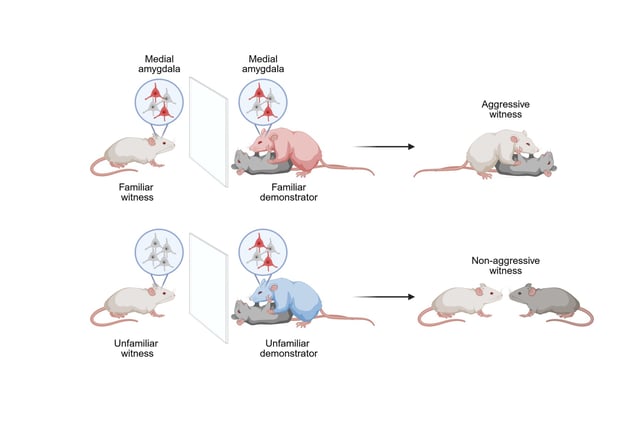Overview
- A peer-reviewed Journal of Neuroscience paper published Sept. 8 reports that observing familiar peers attack increases subsequent aggression in male mice.
- In the paradigm, mice watched 10-minute fights and were tested for aggressive behavior 30 minutes later under controlled laboratory conditions.
- The effect depended on social familiarity and sex, with only males showing increased aggression after witnessing known cage-mates, not strangers.
- Recordings showed activation of aggression-priming neurons in the medial amygdala during observation of familiar attacks, identifying a discrete circuit.
- Silencing these neurons prevented the learned aggression, while activating them promoted later attacks even after watching strangers, suggesting potential therapeutic targets the authors say warrant further study.


